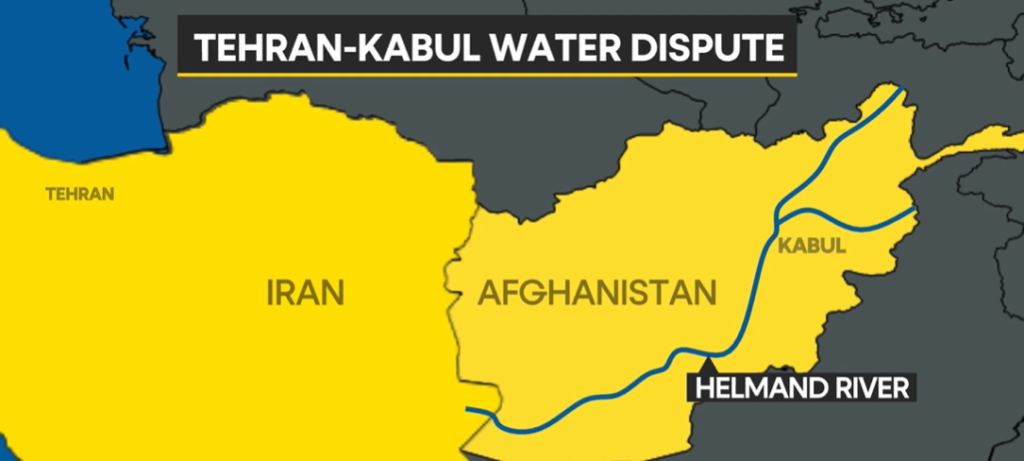26 January, 2025;In a significant diplomatic move, Iranian Foreign Minister Abbas Aragchi visited Afghanistan on Sunday, where he met with Amir Khan Muttaqi, the Taliban’s acting foreign minister. This visit marks Aragchi’s first official trip to Afghanistan since assuming his position as Iran’s foreign minister, underscoring Tehran’s interest in engaging with its eastern neighbor amidst regional complexities.

During the meeting, the two sides discussed a range of pressing issues, including bilateral relations, border security, economic cooperation, and the humanitarian challenges faced by Afghanistan under Taliban rule. Iran, which shares a nearly 900-kilometer border with Afghanistan, has been deeply concerned about the ongoing instability in the country following the Taliban’s return to power in 2021.
Key Areas of Focus
1. Border Security
The porous Iran-Afghanistan border has been a longstanding challenge for both countries, with issues like smuggling, illegal crossings, and sporadic clashes. Both ministers emphasized the need for stronger mechanisms to ensure stability along the border, with Iran pushing for enhanced cooperation to curb security threats.
2. Humanitarian Assistance
Iran has been a vocal advocate for addressing the humanitarian crisis in Afghanistan, hosting millions of Afghan refugees over the years. Aragchi reiterated Iran’s willingness to provide aid and urged the Taliban to facilitate international humanitarian efforts, particularly for women and children who have been disproportionately affected by ongoing challenges.
3. Economic Engagement
Economic ties also featured prominently in the discussions. Iran has remained a vital trade partner for Afghanistan, with exports ranging from fuel to food supplies. The officials explored avenues to boost bilateral trade, including leveraging Chabahar Port as a gateway for Afghan goods.
Regional Implications
Aragchi’s visit signals Tehran’s pragmatic approach to dealing with the Taliban, despite ideological and political differences. While Iran has criticized some aspects of Taliban governance, such as their restrictive policies on women and minorities, it has maintained diplomatic channels to ensure stability along its border and safeguard its strategic interests.
Iran’s outreach also highlights the importance of Afghanistan in regional geopolitics. With players like China, Russia, and Pakistan vying for influence in Kabul, Iran’s active engagement reflects its desire to remain a key stakeholder in shaping Afghanistan’s future.
Conclusion
Aragchi’s visit to Afghanistan underscores Iran’s delicate balancing act of addressing security concerns, fostering economic cooperation, and advocating for humanitarian solutions while navigating the complexities of Taliban rule. As Afghanistan continues to grapple with international isolation and internal challenges, regional diplomacy remains crucial for its stability.
This visit may pave the way for broader regional collaboration and serve as a stepping stone for more constructive dialogue between the Taliban and its neighbors, with Iran playing a pivotal role in shaping the narrative.


